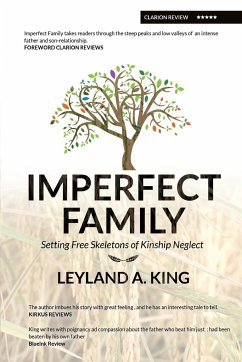Time spent with your children is precious. Just being at home regularly and talking about whatever, is sufficient for the emotional development and comfort of every member of the family. Just talk. This family saga is about an ordinary family's cohesiveness, strength, ambition and determination that made it possible for within one generation to climb the slippery, ramshackle ladder from deprivation to the security of American middle-class. The story accentuates what has been said by many others, that poverty is more a matter of perception and relativity; that with understanding one's situation thoroughly, one might find a way from victim to mastery through right thinking, right actions and reciprocity. The author is not seeking to assert that everyone can bootstrap a way out of poverty. There are places and situations so bereft of opportunities, where poverty is so abject, it will be a travesty to even suggest that behaviors on their part could lift them out. With several years of experience as a Commissioned police officer and a second career as a Child Protective Investigations Program Administrator, the author, having visited the homes of thousands of families, interviewing many, many more individuals, has come to believe what for some is already known at an intellectual level, that there are no perfect families. Through education and specific training, Mr. King has been able to identify the kind of value system, foreign and local that contribute to inter-generational abuse and neglect of children. He hypothesizes, based on impressionistic information available to him, that Plantocracy, its highest values being Control, Obedience, Punishment and Docility, is probably the dominant source of faulty thinking, that may lead to abusive behaviors and consequences, physical and psychological, for families multiple generations removed. But the work is neither pedantic nor judgmental in addressing external, detrimental factors that bind one to calamitous outcomes. Alcohol abuse and dependency, extravagancy, gender imbalance are all portrayed experientially. Throughout the book, there are repeated examples of the importance of filial duties, retention of virtues and some travails brought upon oneself when his control is casually surrendered to another. Exploitation is seen for what it is and discussed without rancor. There is much to enjoy as the readers' imagination goes for a ride with folklore, myths and adventure expressed as humorously as ever.
Bitte wählen Sie Ihr Anliegen aus.
Rechnungen
Retourenschein anfordern
Bestellstatus
Storno








